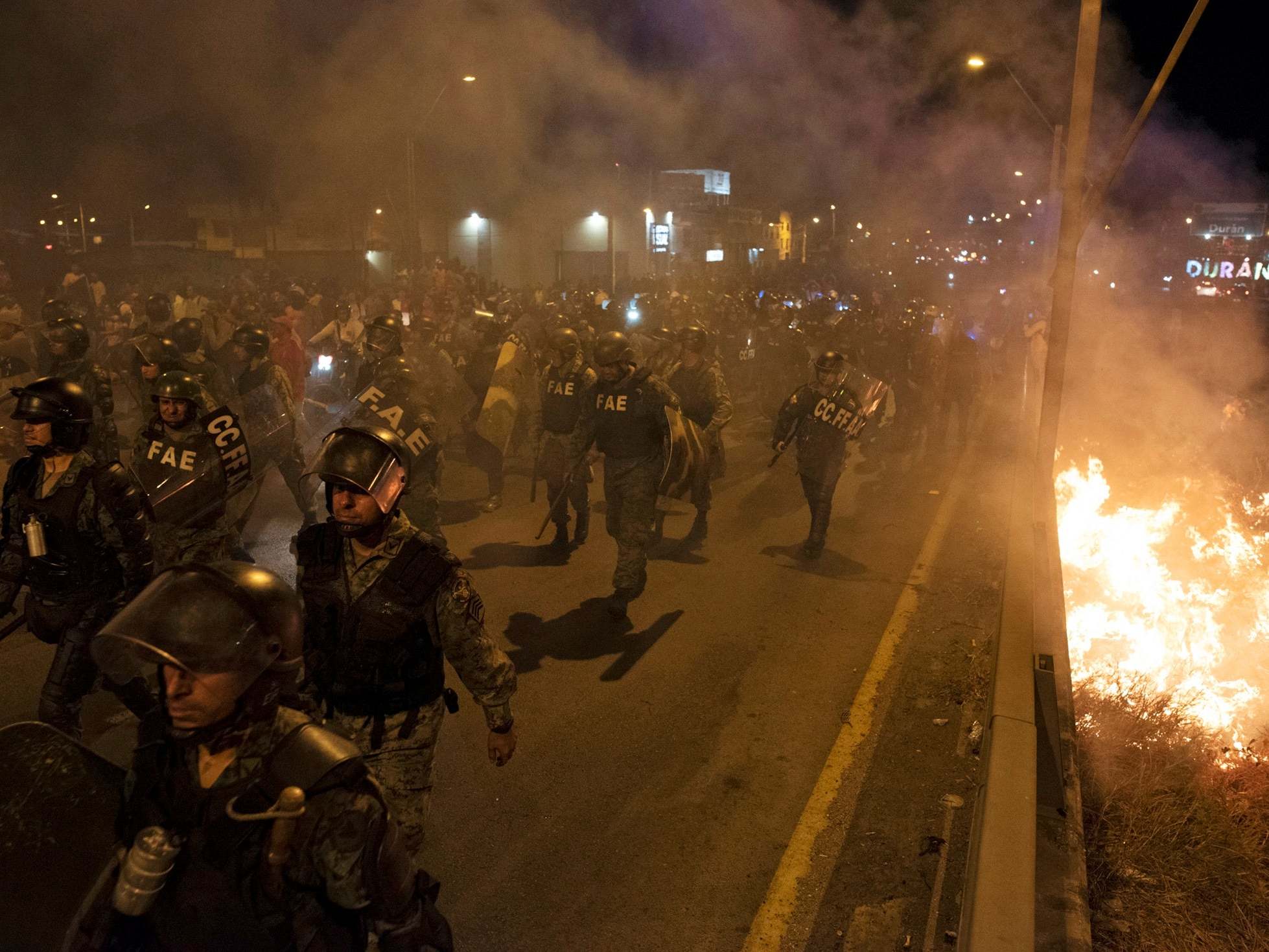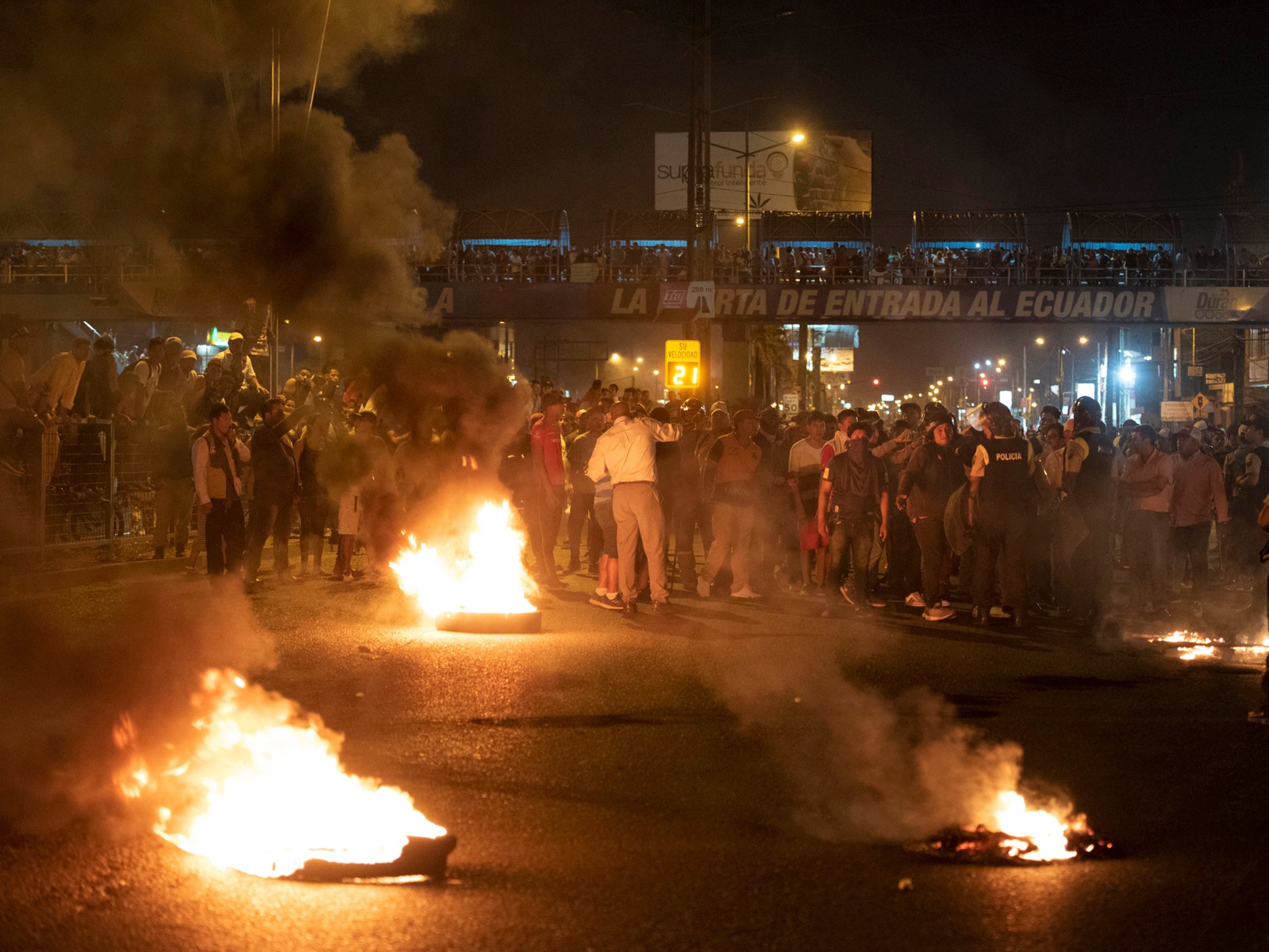Ecuador protests: Government moves out of capital as violent demonstrations escalate
‘These will be days of unrest,’ says protester

Ecuador’s president has moved the country’s government out of Quito, the nation’s capital, following days of violent protests.
Lenin Moreno is struggling to control unrest which began after he scrapped popular fuel price grants six days ago. Demonstrations, road blockades, looting and rumours of food scarcity have followed.
Some protesters clashed with police officers, as the country was plunged further into one of its worse political crises in years. Around 570 people have been detained and the government has imposed a 60-day long state of emergency.
Unions, students and indigenous groups have joined the protests in recent days. Authorities say around 59 police officers were hurt, a dozen police cars destroyed and a local government building attacked.
“Not even jail will stop the Ecuadorean people’s struggle,” said Nelson Erazo, head of the Popular Front, an organisation which includes unions and social movements.
“These will be days of unrest.”
Mr Moreno has said he will not capitulate on the matter of fuel subsidies. On Monday, he said Ecuador’s government would move to the port city of Guayaquil.

The government claims the street protests have caused economic paralysis costing $70m (£57m) a day. Ecuador’s government said on Tuesday that it was open to international mediation, whether through the UN or the Catholic Church.
“The only response is dialogue and firmness at the same time,” said Juan Sebastian Roldan, the presidency secretary.
”We have no problem accepting mediation suggested by the United Nations, some members of the Church, and (university) rectors.”
The grants have held down fuel costs but Mr Moreno said they would come to an end, as part of a package of measures designed to reboot Ecuador’s economy.
The measures comply with a $4.2bn (£3.4bn) International Monetary Fund loan. Transport workers went on strike shortly after the announcement, in action that lasted a few days.
Thousands of protesters from the country’s indigenous communities have also joined the demonstrations. They converged on Quito on Tuesday and plan to march on the heavily guarded presidential palace.

Some barricaded roads with burning tyres, rocks and branches. The police deployed tear gas and armoured vehicles in response.
Mr Moreno has accused his predecessor, Rafael Correa, of seeking to engineer a coup with the help of Nicolas Madurom the leader of Venezuela.
“They want to turn Ecuador into Venezuela,” he said.
Mr Correa has denied any involvement.
“People couldn’t take it anymore, that’s the reality,” he said.
Additional reporting by agencies
Join our commenting forum
Join thought-provoking conversations, follow other Independent readers and see their replies
Comments
Bookmark popover
Removed from bookmarks